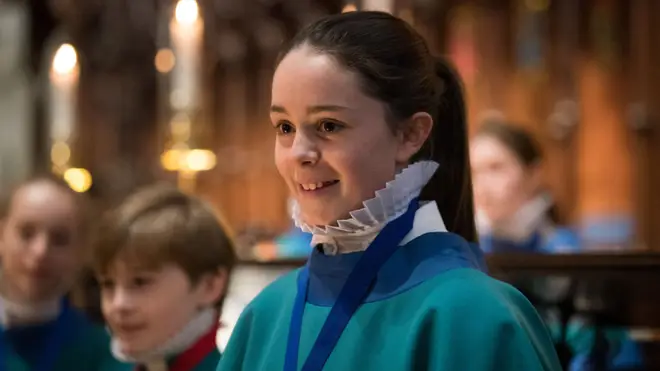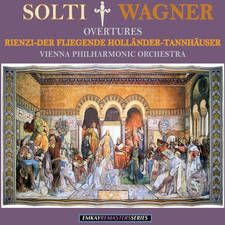10 stunning Christmas carols written by women composers
20 December 2022, 17:28 | Updated: 22 December 2022, 15:15

From well-known choral classics, to carols both baroque and modern, we present a feast of festive works by women composers.
Christmastime is a period where great choral music can be heard in churches, on radios, and in shopping centres.
A gorgeous choral soundtrack of carols, both religious and non-secular, play a large role in this festive season, but how many of these works for choir are written by women?
In this list, we’ve spotlighted 10 stunning Christmas carols written by women, and a host of harmonious performances by some of the world’s top ensembles.
Read more: The 30 greatest Christmas carols of all time
-
Now May We Singen – Cecilia McDowall
This unaccompanied choral work by British composer, Cecilia McDowall, was written in 2007 after being commissioned for the Concord Singers. The carol is written for SATB with its text originating from the 15th century.
Memorable for its dance-like rhythm, McDowall’s music brings a lilt of medievalism suited to the centuries-old text.

Now May We Singen (Cecilia McDowall) – Genesis Sixteen | Classic FM Sessions
-
Peace on Earth – Errollyn Wallen
This beautiful and reflective work by Errollyn Wallen is a popular carol sung during Christmastime. The piece for choir will be performed during this year’s Nine Lessons and Carols 2022 from King's College, Cambridge.
The Belize-born British composer and performer was appointed Commander of the Order of the British Empire (CBE) in the 2020 New Year Honours.
Read more: Composer Errollyn Wallen: ‘Christmas carols are about singing together, and about community’

Peace on Earth | Errollyn Wallen
-
In the Bleak Midwinter – Becky McGlade
This captivating choral setting of Christina Rossetti’s famed poem was composed by Cornish composer Becky McGlade. The poem came to McGlade as she was wandering down a chilly Cornish lane in November.
This cold and still landscape the composer walked through is captured intimately in McGlade’s writing, making it a worthy addition to the other famed In the Bleak Midwinter settings.
-
This Endris Night – Sarah Quartel
Canadian composer Sarah Quartel’s enchanting carol comes from a 15th-century English text, depicting a conversation between Mary and the baby Jesus.
Opening with (optional) handbells and soft ‘oohs’ from the get-go, this piece transports listeners to a harmonious heavenly plain, with a lullaby-like theme, achieved from the 6/8 time signature.

This Endris Night by Sarah Quartel, Luther College Collegiate Chorale
-
Christus Natus Est – Rosephanye Powell
Dr Rosephanye Powell’s work for choir comes from an English and Latin text by African-American poet Countee Cullen (1903-1946). Reading Cullen’s poetry, Powell says she was, ‘transported back in time, imagining the hope of Christ’s birth in the lives of my forefathers and mothers as they struggled for equality, justice and freedom during the time of slavery through the Civil Rights Movement’.
Powell’s powerful piece is available for choir and the orchestra, but the performance below features the organ in its beautiful rendition.
Listen to our Classic FM Christmas playlist >

Christus Natus Est | Rosephanye Powell & Countee Cullen
-
O Frondens Virga – Hildegard von Bingen
Born in 1098, Hildegard von Bingen is the oldest composer on our list. The famed saint, musician and poet wrote O frondens virga as an ode to the Virgin Mary, its title translating literally to ‘O blooming branch’.
The almost 1,000-year-old piece of music is often sung during the Christmas season, and Bingen’s masterful polyphonic writing sends chills through both the audience’s and performer’s bodies.

CHANTICLEER: O Frondens Virga by Hildegard von Bingen (1098-1179)
-
The Huron Carol – Eleanor Daley
One of Canada’s most popular carols is reimagined in this arrangement by Eleanor Daley. Whilst the melody for this piece is thought to have come from a 1557 French folk song called, Une jeune Pucelle, Daley’s arrangement showcases the Canadian composer’s particular flair for writing for upper voices.
The history of the 16th-century carol is long and complex due to colonial connotations. The lyrics were originally written in the Wendat language (Huron) in 1642 by a French Jesuit priest, and was used to introduce Christianity to the Indigenous people. The carol’s original title was Jesous Ahatonhia which translated from Wendat to ‘Jesus is Born’.

The Huron Carol - Eleanor Daley - The Choirs of Pembroke College/Anna Lapwood
-
Jesus Christ the Apple Tree – Elizabeth Poston
Alluding to either the apple tree in the Song of Solomon – often interpreted to mean Christ himself – or to the tree of life, mentioned in Luke’s Gospel, Poston’s fruit-titled carol is a Christmas classic.
Though the text’s author and intended use are unknown, the early 20th-century English composer’s setting remains widely performed thanks in part to its gentle, haunting melody.

Jesus Christ the Apple Tree by Elizabeth Poston
-
We Look for You – Reena Esmail
From the set of three carols, A Winter Breviary, ‘We Look For You’ by Indian-American composer Reena Esmail was only published in 2022. Esmail brings together the worlds of Western and Indian classical music in her compositions, and in the case of A Winter Breviary, each of the three movements are based on a different Indian raag; Raag Hamsadhwani, Raag Malkauns, and Raag Ahir Bhairav, respectively.
‘We Look For You’ is the first of the three carols, sung stunningly below by the Gesualdo Six. The lively third carol from A Winter Breviary, ‘The Unexpected Early Hour’, will be included in the Oxford University Press’ Carols for Choirs 6.

We Look For You (from 'A Winter Breviary')
-
My Guardian Angel – Judith Weir
Master of the King’s Music, Judith Weir, has written a multitude of celebrated carols – including Illuminare Jerusalem which will be performed as part of this year’s Nine Lessons and Carols 2022 from King’s College, Cambridge.
My Guardian Angel composed by Weir is a setting of a short text by William Blake. Throughout the carol is a recurring ‘alleluia’ that can optionally be sung by the audience while the choir sing the text over this lulling bed of music, as demonstrated in this performance by the Edinburgh University Singers below.
Read more: ‘Music was really central to the Queen’s life’ – Judith Weir, Master of the King’s Music

My Guardian Angel: Judith Weir
And a bonus one...
As it’s Christmas, we thought we’d give you a bonus carol. ‘We Toast The Days’ by American choral composer Linda Kachelmeier, though a carol, is not technically written for Christmas. Kachelmeier wrote the piece to be sung at midnight on New Year’s Eve with friends and family.
The secular New Year’s carol is celtic-inspired, evidenced by the emotive ornamentation included in the opening solo line. The performance below was recorded during the pandemic, and Artistic Director of the Choral Scholars of University College Dublin, Desmond Earley, said piece served, “as a reminder of the strength, love, and hope that resonated throughout the world not simply at Christmastide but also during periods of hardship”.

We Toast the Days









































